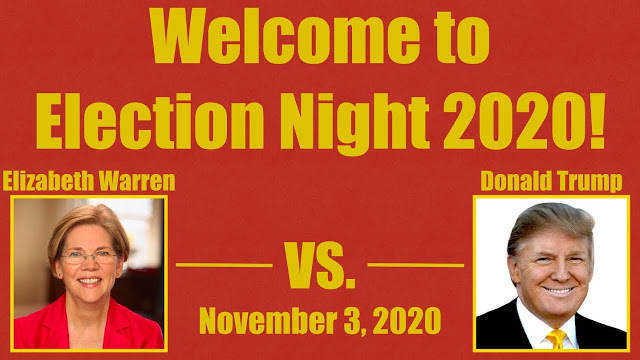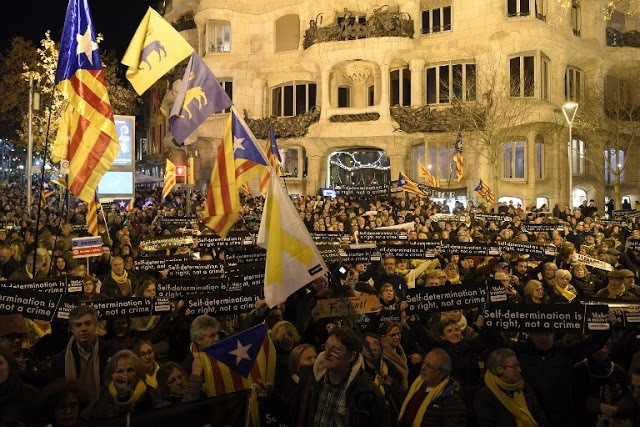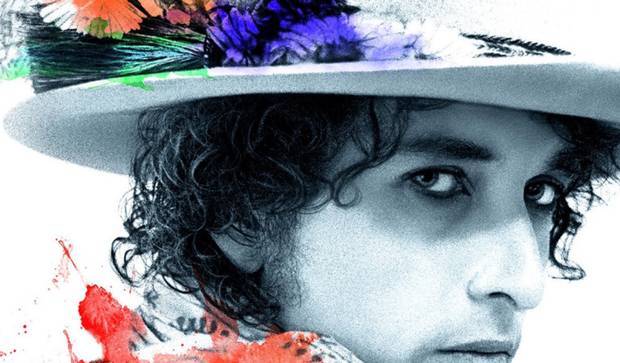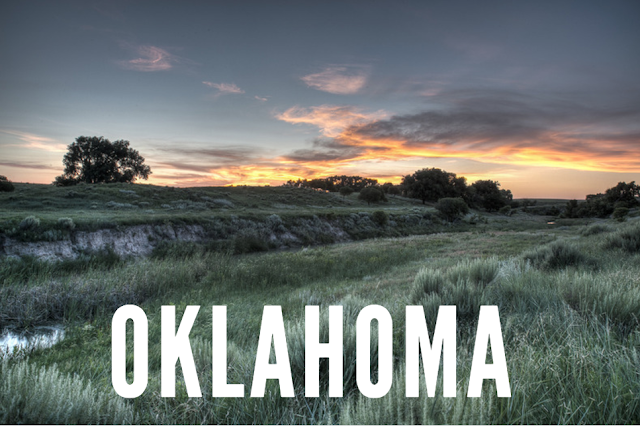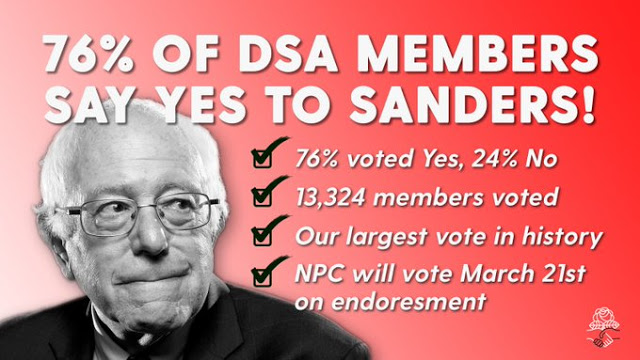I have been wrong about 2020’s presidential election and I
should say so. I had expected that by the end of Super Tuesday (March 3rd
this time around), we would see a Democratic party race reduced to no more than
four serious contenders: Bernie Sanders, Elizabeth Warren and one or two
centrists aiming for the neoliberal vote, the old Clinton coalition that has
not won a presidential contest since 1996.
That may still be the case, but I was certain that California
Senator Kamala Harris would be one of those centrists. I had not counted on the
amount of distrust that her role as a law-and-order prosecutor as the San
Francisco DA and California State Attorney General would generate among black
voters, nor on the amount of residual goodwill those same voters would feel
towards my colleague among the Penn professoriate, former VP Joe Biden, the man
who gave us Clarence Thomas on the US Supreme Court. The man who made his bones in the Senate as the
rep from Delaware, the state that survives financially on being the pro forma
corporate headquarters for many US Corporations.
The inside-the-Beltway punditocracy – an amalgam that lives
only in the environs of DC & Wall Street, albeit with a few outposts up
Laurel Canyon and Sandhill Road – remains convinced that the Democratic nominee
has to be a neoliberal because they recognize (rightly) that Obama in action
was one of their own. This means neglecting the glaring detail that Obama only beat
Hillary Clinton in 2008 by convincing voters that he was a progressive
candidate, running as the antiwar alternative to neoliberalism. Appointing
Clinton to become his Secretary of State turned him into something very
different, one of the great bait-and-switch artists of all time. It also ensured
the failure of his foreign policy and guaranteed that his successor would
almost inevitably be a Republican, any Republican. And any Republican is what
we got, Putin’s hand-picked protégé, Donald J. It still took a massive voter
suppression and misinformation operation to enable Trump to pull out a narrow win
while being outvoted by some 3 million ballots nationwide. These days, that sad
package is what the GOP likes to call “the will of the American people.” I have
to swallow my vomit every time I hear that phrase.
Hillary Clinton did herself no favors by running a dreadful
campaign, picking the whitest of white male running mates (thus aiding and
abetting GOP efforts to suppress the African-American vote, which made all the
difference in Philadelphia, which went for her by the same percentages that it
had given Obama, but far fewer actual votes that were then overwhelmed by the
angry white rural vote Trump turned out with gusto in that central Pennsylvania
domain everyone here calls Pennsyltucky), while perpetuating the neoliberal
disdain for working people in general. Had she picked Corey Booker or Julian
Castro, she would be president today and the Russian mischief would have been
just that. She might even have gotten away with Al Franken or Sherrod Brown.
But Tim Kaine and here we are.
That was then, this is now. I still expect the post-Super
Tuesday race to telescope down to Bernie, Liz and some neoliberals. That latter
group will most likely include Joe Biden, Mayor Pete Buttigieg and one or two
billionaires. Unless Sanders and Warren come to some agreement in advance of
the Democratic Convention, that is a prescription for a brokered convention.
And my gut tells me that the candidate who would emerge from a brokered
convention just might be Hillary Clinton.
Are you ready to relive that nightmare?
Me neither. Fortunately, it is plausible that Warren and
Sanders might have, between them, enough votes from the primaries to constitute
an absolute majority of delegates at the convention and thus shortcut that
scenario once and for all. In California, for example, the polls currently show
them running one and two, with Biden third, Buttigieg fourth and (pre-dropping
out) Harris fifth. It was the prospect of coming in so low in her own home
state, which would have derailed not just her national ambitions but conceivably her electability to her
current gig (she ran unopposed in the primaries for her first term, replacing
Barbara Boxer, handpicked by the same behind-closed-doors process that the late
Phil Burton and Willie Brown engineered in the 1960s and that only Dianne
Feinstein has ever successfully sidestepped*) that prompted Harris to quit when
she did. Any later and she would have been on the ballot on Super Tuesday.
Warren and Sanders may not love one another, but they are
rational actors – not something that can be said of every presidential candidate
– and I have some faith that they would consolidate their delegates to fend off
a neoliberal if they hold a majority. If they don’t, however, it will be a
scramble among the neolibs to see who can attempt just the opposite.
Joe Biden is the chicken-soup-for-your-soul centrist, and it
is conceivable that he could prevail in a contest where the nation has grown
weary of the constant chaos of Trumpism. I take most of his verbal stumbles and
gaffes to be the consequence less of aging and more of his vestigial stuttering,
but when he opts for another word that he can pronounce in lieu of one that is
not coming, he too often reveals where his psyche actually wants to go. He has
never been a progressive. A Biden presidency would not just be a one-term deal
(hello Nikki Haley or Jim Jordan 2024), it would mean putting off serious
action on subjects like climate change and white racism for four more years. We
don’t have four more years we can wait. It is plausible that the black
community’s willingness not to hold what Biden did to Anita Hill against him could
last to November, but I suspect that some mysterious hacker in Minsk will do a
lot to remind us of every bit of baggage Joe has and it’s enough to fill up the
Acela to DC.
Buttigieg wants to be the Obama of 2020, but he’s not
pretending to be a progressive except by identity. His service record and South
Bend creds do him some good with midwestern voters but folks who think his
background as a McKinsey consultant qualifies him for squat have never met a
McKinsey consultant. In the business world, it’s an act that only goes over
with the easily impressed. Still he may be the only candidate at the convention
under the age of 60.
The one other non-septuagenarian who might still be there is
self-funded Tom Steyer, who will turn 62 in June. I say might because it’s
clear that he has the money to do so, but he will have very few delegates and
it’s hard to imagine what he does after the US Senate declares Trump to be as
innocent as the driven snow on his impeachment charges. What Steyer will be running for after his
signature issue is cast asunder by Moscow Mitch is hard to imagine.
Similarly hard to imagine is the other billionaire vanity
candidate, ex-GOP mayor of New York City Mike Bloomberg, Manhattan’s answer to
Donald Trump (he ran the city five days a week from an office within walking
distance to Wall Street and spent his weekends in the Caribbean, although he is
rumored to have visited some of the other boroughs in the runup to his elections).
While he does seem to be serious on gun violence, he knows he could do much more
for America simply by acquiring Fox and turning it into something more akin to the Wall
Street Urinal by requiring that it, at least periodically, tell the truth.
And, although I think he could get some delegates through his campaign to spend
big and gather endorsements from urban mayors, I think his real goal is to
ensure a brokered collection – I’m not sure he will accomplish even that since
he will only draw from the Democratic party’s right. Ain’t no way progressives
are going for Uncle Stop-n-Frisk.
The current neoliberal talking point is that Corbyn’s
crashing defeat in the UK “proves” that a progressive candidate would be a
disaster against populist Donald Trump in the US. But what doomed Corbyn was
his muddled position on Brexit and the leftopian fantasy that he could make the
election about social services. It was a one issue election and he was fundamentally
unclear on that issue. The US election will be a one-issue election also, Trump
or no Trump, and all Warren’s gazillion plans and Bernie’s left-populism in the
name of socialism do is rally their part of the left for the nomination.
In one sense, the more concrete and comprehensive Warren is
before the election, the more like voters will be confused by the blizzard of
inside-the-beltway thinktank attacks on every one of her plans after it. Although I’m
a DSA member (and DSA endorsed Bernie a year before it needed to), I prefer Warren
because (a) America could really use a woman president [I mean seriously],
(b) she’s nine years younger than Bernie, in better health and the
third youngest of the contenders and (c) I like plans, I really do. But the DSA
argument that Bernie is the stronger candidate is not unreasonable. I would
vote for any of the other candidates against Trump, but recognizing that this
means putting off progress on climate change, gun violence, income inequality
and the rest of the must-do-right-now issues that have been festering ever
since Bill Clinton sold the Democratic Party to Goldman Sachs back in 1992.
So we had better hope that 2020 is a change election and that
the Dems don’t self-destruct through Wall Street’s desperation to head off progressives.
A brokered convention gives the presidency to Donald Trump. And the only way
Biden wins will be if Trump-derangement-syndrome has given enough of the country
PTSD** to make chicken-soup-for-the-neoliberal-soul a viable position. Color me
unconvinced.
* Did I mention that it was Burton’s widow
Sala who hand-picked Nancy Pelosi to be her successor to Congress or that
Harris used to date Willie Brown, or that Boxer got her start working for Phil
Burton’s brother John? Feinstein, the accidental SF mayor due to George Moscone’s
assassination, was never opposed by Ye Olde Burton machine though neither side
particularly likes the other. Currently, Pelosi and Governor Gavin Newsom appear
to run that operation and Newsom, whose father owed his judgeship to it, may be
kicking himself for not running in 2020, empty suit that he is.
** Every therapist I know is fully booked going
forward because of this very real phenomenon.


